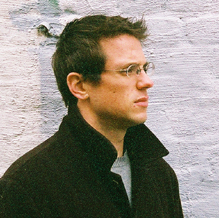 Monday, May 02, 2005
Monday, May 02, 2005
Temirkanov: Pros and Cons
In her review of the Baltimore Symphony Orchestra at Carnegie Hall, Anne Midgette asks a question and then answers it. Question: In today's world, what is the function of midsize American Orchestras like the Baltimore? Answer (or, part of the answer): "An orchestra like the Baltimore must . . . serve a museum function, presenting the famous classical pieces its audience wants to hear." As a former Baltimore resident, I think the orchestra is beginning to serve mostly a museum function (their abundant pops programming notwithstanding).
Even though the Baltimore Symphony still received praise for its playing of a more recent work (Giya Kancheli's Lonesome), since Temirkanov replaced David Zinman at the helm, the group's programming has certainly moved toward the conservative side. I lived in Baltimore when the shift happened. I loved Zinman's programs--his focus on new American works, his energy, and his ease with the audience as he frequently talked informally with the crowd about the piece that was to be played. When Temirkanov took over, everything changed. The programming turned from adventuresome new works to tried and true warhorses. In stark contrast to Zinman's warm, outgoing personality and stage prsence, Temirkanov was cold and dry. Maybe that's what Baltimore wanted. Maybe that's what they needed to sell more tickets. Despite what the political polls tell you, the Baltimore-D.C. area is rather conservative--musically, at least.
The New York Times is usually quite critical of Mr. Temirkanov and Ms. Midgette continues that tradition, noting "he has not achieved a particularly meaningful connection with [the Baltimore] players." I'm not so sure that's entirely his fault. It might not be his fault at all and I would probably place more blame on the players for this fact than on the Maestro. I had the great fortune to perform under Mr. Temirkanov's baton recently, only not with the Baltimore Symphony, but the St. Petersburg Philharmonic (Russia, not Florida). (I played Rachmaninoff's Symphonic Dances, which contains one of the most beautiful saxophone melodies in the entire repertoire.) I'm apt to blame the Baltimore players and not Temirkanov because of what occurred on stage with the St. Petersburg Phil. Temirkanov absolutely owned this orchestra. There was simply no question that this was his group. I had never heard such a large ensemble play so together. And anyone that knows Temirkanov's conducting, knows that he often eschews a little clarity to turn a phrase just the right way. The St. Petersburg players read his every twitch, sometimes even seeming to read his mind. I was blown away by the artistry and focus he exuded during the performance. Temirkanov gets a bad rap sometimes, but maybe with the Baltimore Symphony, it's not entirely under his control.
posted by Brian Sacawa
1:36 PM
|
|
 Praised by The New York Times as "an inventive musician . . . fresh and surprising," saxophonist Brian Sacawa has firmly established himself as an important contemporary voice for his instrument. He is active as a soloist, recitalist, and chamber musician throughout the United States and is the co-founder of the new music duo Non-Zero with percussionist Timothy Feeney.
Praised by The New York Times as "an inventive musician . . . fresh and surprising," saxophonist Brian Sacawa has firmly established himself as an important contemporary voice for his instrument. He is active as a soloist, recitalist, and chamber musician throughout the United States and is the co-founder of the new music duo Non-Zero with percussionist Timothy Feeney.
He has given premieres of over thirty works by both established and emerging composers, including Michael Gordon, Bright Sheng, Andrew Mead, Oliver Schneller, Ken Ueno, Beata Moon, Hillary Zipper, and Scott McAllister, among many others. Named the Baltimore CITYPAPER’s Critic’s Choice for Classical Music in 2002, he is the recipient of awards for solo performance from both national and international competitions.
Sacawa's versatile career has led to appearances with the St. Petersburg Philharmonic, the Detroit Symphony Orchestra, the New World Symphony, Harvard Group for New Music, New Music Brandeis, Bargemusic, and at meetings of the ISU Contemporary Music Festival, World Saxophone Congress, North American Saxophone Alliance, and New England Saxophone Symposium.
Brian holds degrees from the University of Michigan, the Peabody Conservatory, and the University of Massachusetts – Amherst, where he studied with Donald Sinta, Gary Louie, and Lynn Klock. He has recorded for the Equililbrium, Naxos, and BiBimBop recording labels.
See Brian's other blog
Sounds Like Now
| |



